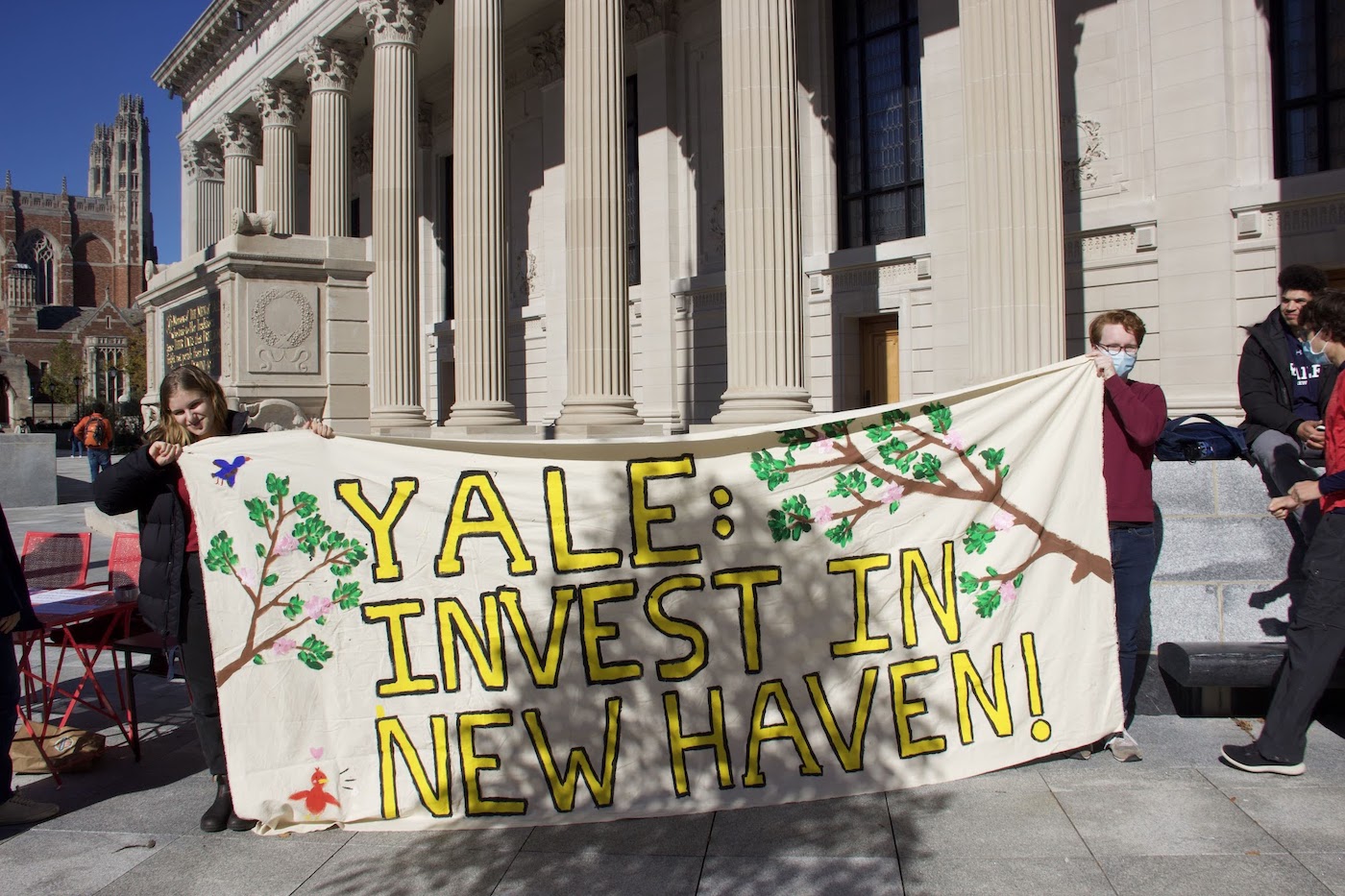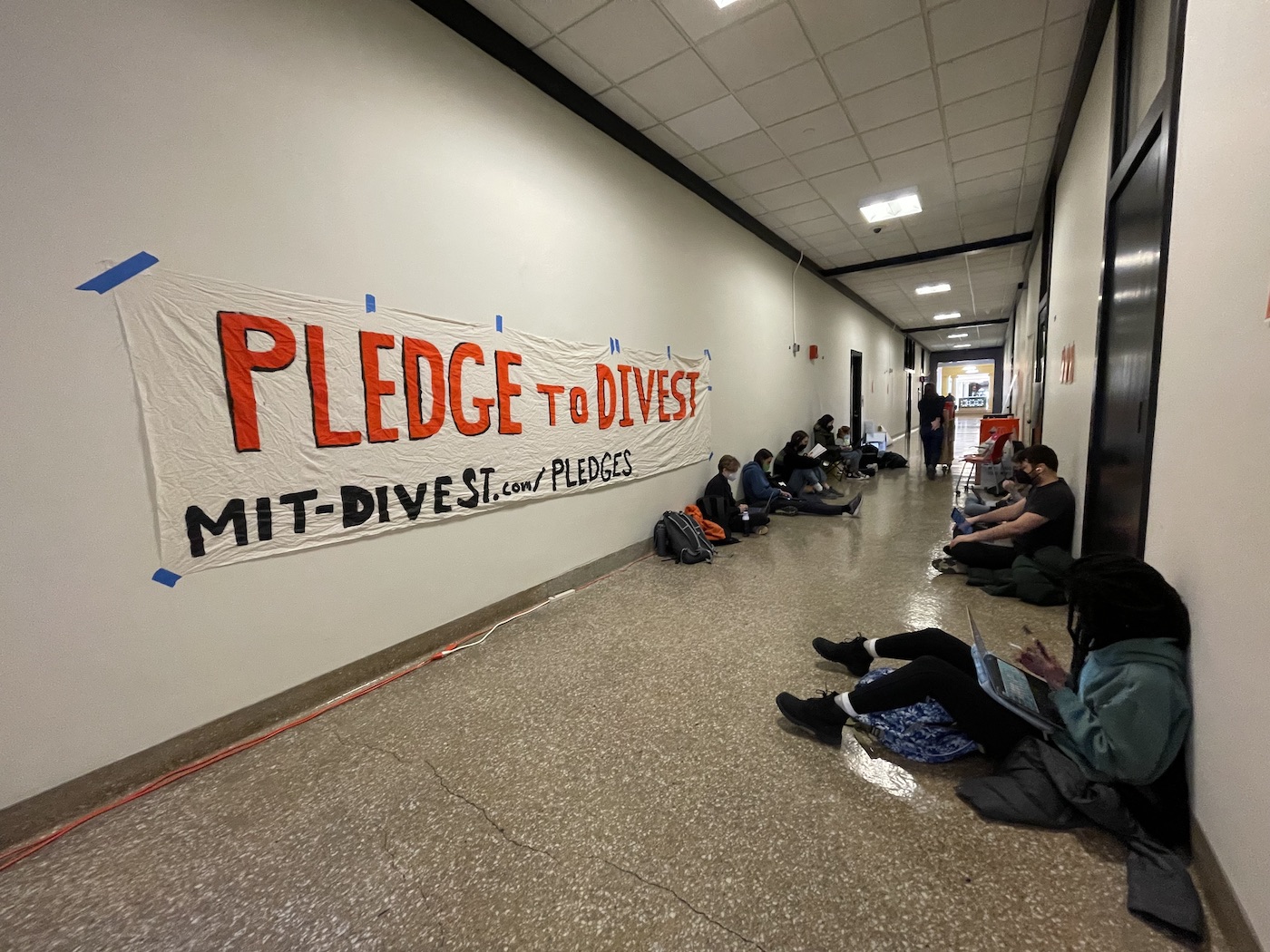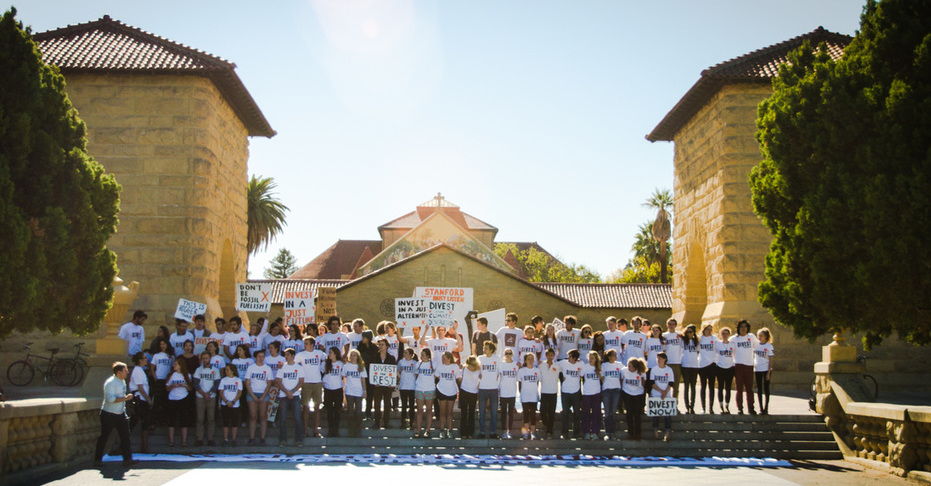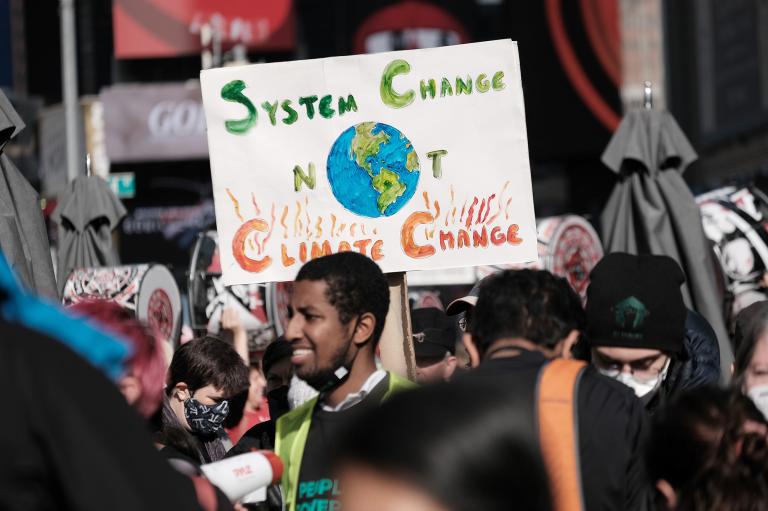Students and faculty have been asking universities to divest from fossil fuels for more than a decade now. But what started as a campaign to erode the industry’s “social license to operate” is developing more sophisticated arguments about fiduciary duty and prudent investing.
On Wednesday, student divestment activists from Yale, Princeton, the Massachusetts Institute of Technology, Stanford, and Vanderbilt filed legal complaints with their respective states’ attorney generals’ offices accusing their schools of violating the Uniform Prudent Management of Institutional Funds Act, or UPMIFA. Every state in the U.S. except for Pennsylvania has passed a version of UPMIFA, which establishes investing principles that nonprofit endowment managers must follow. The students hope the coordinated action will not only pressure their own schools into divesting but potentially set a new legal precedent for all institutional investors.
“We didn’t just write this 80-page document to, like, make Yale scared,” said Molly Weiner, a freshman at Yale and organizer with the Yale Endowment Justice Coalition, a campus activist group. “If Attorney General William Tong does decide to open an investigation into fossil fuel investments, that means that in all of Connecticut, there is a clear imperative for pension funds and all other sort of institutional endowments with charitable statuses to divest. And it sets a powerful precedent for other states as well.”
While the law varies slightly by state, UPMIFA generally binds institutional endowment managers to consider the “charitable purpose” of the institution while investing, to invest with “prudence,” and to invest with “loyalty.”
In their complaints, the students highlight the ways in which the destruction caused by fossil fuels conflicts with their schools’ charitable purpose or educational goals. For example, the Yale complaint alleges that fossil fuel investments run contrary to the school’s mission of “improving the world today and for future generations through outstanding research and scholarship, education, preservation, and practice.”

The complaints argue that fossil fuel investments are no longer prudent, considering that some fossil fuel stocks have underperformed in recent years. Some of the students cite lawsuits filed by their own state attorneys general alleging that fossil fuel companies have misled the public about the impact of burning fossil fuels for decades. The complainants also assert that oil and gas investments violate their schools’ duty to invest with loyalty, since fossil fuels threaten “the lives and prospects of young people” and pose a physical threat to school property.
The five groups that filed complaints on Wednesday are not the first to try this legal approach. Over the past two years, activists from six other schools have filed nearly identical complaints in New York, Massachusetts, Maryland, Wisconsin, and New Mexico. While no attorneys general have announced plans to investigate the claims to date, two of the schools — Harvard and Cornell — made announcements to divest in the wake of the complaints.
Connor Chung, an organizer with Fossil Free Divest Harvard, said the group’s UPMIFA complaint was “absolutely essential in winning divestment at Harvard.” Chung noted that Harvard University President Laurence Bacow’s announcement that the school would phase out its fossil fuel holdings last fall seemed to allude to the complaint by emphasizing the school’s fiduciary duty “to make long-term investment decisions that support our teaching and research mission” and noting that the school does not “believe such investments are prudent.”
All together, the schools whose students filed complaints on Wednesday manage more than $155 billion. While none have been transparent about their fossil fuel investments, students estimate that they’ve invested some $3.5 to $5 billion in the industry.

The students’ divestment campaigns have made varying degrees of progress. Will Coburn, a student at Vanderbilt and organizer for the campus group Dores Divest, said the administration has not engaged with the students’ campaign and has denied them meetings with the school’s board of trust. Stanford agreed to divest from coal in 2014 but hasn’t taken any further action since then. The Yale board of trustees adopted “Fossil Fuel Investment Principles,” or FFIP, last year, and recently announced that it determined that Exxon and Chevron would not be eligible for investment. But Weiner pointed out that the school has $263 million invested in EQT, a natural gas fracking company. “If that can fly under the face of the FFIP, I don’t really understand why we have it,” she said.
Last year, Princeton established a new process for “dissociating from companies engaged in climate disinformation campaigns or that are involved in the thermal coal and tar sands segments of the fossil fuel industry.” Hannah Reynolds, a senior at Princeton, said the school has yet to set a timeline or benchmarks for progress. “I do view this as a start,” she said, “but without real commitments and actual divestment, it means nothing.”

Reynolds is also concerned that a new faculty panel the school formed to vet divestment decisions includes several professors who get substantial research funding from the fossil fuel industry. That concern is not unique to Princeton. All five complaints filed Wednesday mention financial or professional ties between university endowment overseers and the fossil fuel industry.
Grist reached out to each of the five universities for comment on the complaints. Spokespeople for Yale and Princeton declined to comment but pointed to the FFIP and dissociation process described above.
Dee Mostofi, assistant vice president of external communications at Stanford, said, “We are confident that Stanford investments fully comply with all applicable laws regulating charities in California,” and added that the school is focused on building an investment portfolio that has a net-zero greenhouse gas footprint by 2050.
Vanderbilt and MIT did not respond by press time.




